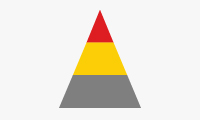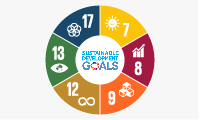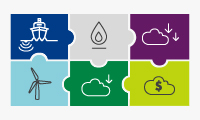About this report
The 2017 Sustainability Report, published on April 9, 2018, is our 21st report. Sustainability at Shell means providing energy in a responsible manner, respecting people, their safety and the environment.
This report focuses on the key sustainability challenges we face and the many ways we are responding. It details our social, safety and environmental performance in 2017.
Topic selection for 2017
The topic selection process identifies the sustainability subjects that were most relevant to Shell and our stakeholders or prominent globally in 2017.
Each year, we use a structured process to select the report’s content and confirm its validity. We engage with various groups and individuals to understand specific concerns about our business and its impact around the world, particularly in relation to the environment and society.
These include community representatives, business partners, customers, non-governmental organisations, investors, the media, academics, contractors, suppliers, ratings agencies and members of the public. We also talk to teams within Shell across all parts of our business. We gather opinions and advice in various ways including formal and informal meetings, workshops and online surveys.
This report lists the topics that were a priority to our company in 2017. The topics that consistently ranked of higher importance were energy transition and climate change, as well as business ethics and corporate governance. A full list of priority topics is provided in the table below.
The main steps involved in selecting the topics are:
Step 1: identify and understand topics that are important to our stakeholders;
Step 2: identify topics that are important to Shell’s business strategy;
Step 3: collate all the topics identified as of high importance by our stakeholders in the previous steps – these topics determine the report’s content;
Step 4: identify the topics that will be covered elsewhere on www.shell.com;
Step 5: consider input from our Report Review Panel to ensure that coverage is balanced, relevant and complete; and
Step 6: inform Shell’s Executive Committee of the chosen topics, for their endorsement.
Reporting guidelines
We report in line with guidelines developed by IPIECA, the global oil and gas industry association for environmental and social issues, and in accordance with the Global Reporting Initiative (GRI) version 4 (See GRI index on www.shell.com/sustainabilityreport for full details).
In 2018, we are using the recommendations of the Task Force on Climate-related Financial Disclosures (TCFD) to guide our reporting in our 2017 Annual Report and 2017 Sustainability Report, complemented by our Sky Scenario and the Shell Energy Transition Report. The TCFD was set up by the Financial Stability Board, an international body, and the recommendations call on companies to provide greater transparency about how they identify, assess and manage climate-related risks and opportunities.
In 2017, we were one of the earliest supporters of the TCFD and we continue to work with the task force to help develop more specific guidance on meaningful disclosures linked to climate change. To that end, we have joined the Oil & Gas Preparer Forum, initiated by the TCFD and convened by the World Business Council for Sustainable Development, an advocacy association.
More detailed information about how we report is available on www.shell.com.
 Sustainability at Shell
Sustainability at Shell
 Sustainable development goals
Sustainable development goals
 About our data
About our data
 Energy transition and climate change
Energy transition and climate change